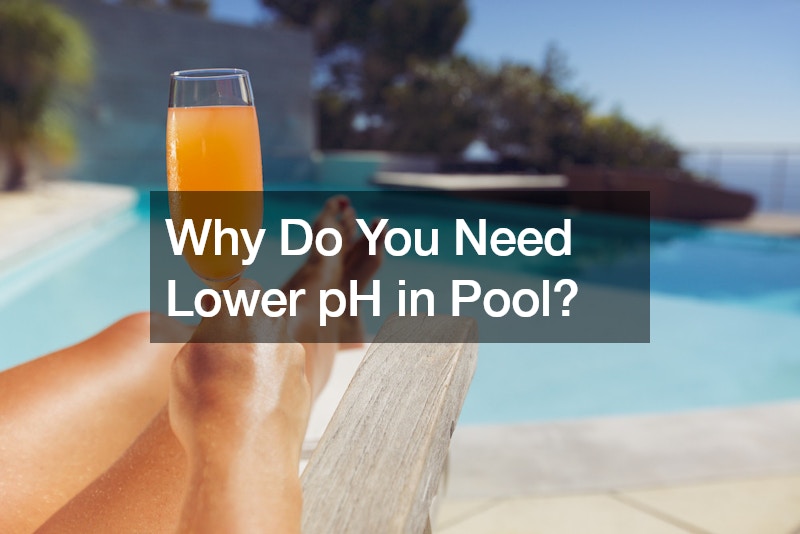
Maintaining the proper pH level in a swimming pool is crucial for several reasons, impacting everything from swimmer comfort to the longevity of pool equipment. The ideal pH range for pool water is typically between 7.2 and 7.8, with 7.4 to 7.6 being optimal. However, there are situations where you might need to lower the pH of your pool.
Understanding why you need a lower pH in pools can help you maintain a safer, more enjoyable swimming environment.
Swimmer Comfort and Health
One of the primary reasons to lower the pH of your pool is to enhance swimmer comfort. When the pH is too high (above 7.8), it can cause several issues. High pH levels can lead to skin and eye irritation, making swimming an uncomfortable experience. This irritation occurs because high pH levels can interfere with the natural oils in the skin and eyes, leading to dryness and discomfort. Maintaining a lower pH within the recommended range ensures that the water is closer to the natural pH of the human body, reducing the likelihood of irritation.
Effective Chlorine Sanitization
Chlorine is the most common chemical used to disinfect pool water, but its effectiveness is highly dependent on the pH level. When the pH is too high, the active form of chlorine, hypochlorous acid (HOCl), decreases, reducing the sanitizing power of the chlorine. This means that even if you add the correct amount of chlorine, it won’t be as effective in killing bacteria and other pathogens. By lowering the pH to the optimal range, you ensure that chlorine works efficiently, keeping the pool water safe and clean.
Preventing Scaling and Cloudiness
High pH levels can lead to the formation of scale on the pool surfaces and equipment. Scale is a hard, chalky deposit of calcium carbonate that can form on pool walls, floors, and in the plumbing system. This not only makes the pool unsightly but can also cause damage to pool equipment, leading to expensive repairs. Additionally, high pH levels can cause the water to become cloudy, making it less inviting and potentially hazardous as it obscures visibility. Lowering the pH helps prevent these issues by keeping the water balanced and clear.
Protecting Pool Equipment
Maintaining a lower pH can also extend the life of your pool equipment. High pH levels can cause corrosion and scaling in the pool’s circulation system, including pumps, filters, and heaters. This can lead to decreased efficiency and increased maintenance costs. By keeping the pH within the recommended range, you protect your investment in the pool and its components, ensuring they function properly for a longer period.
